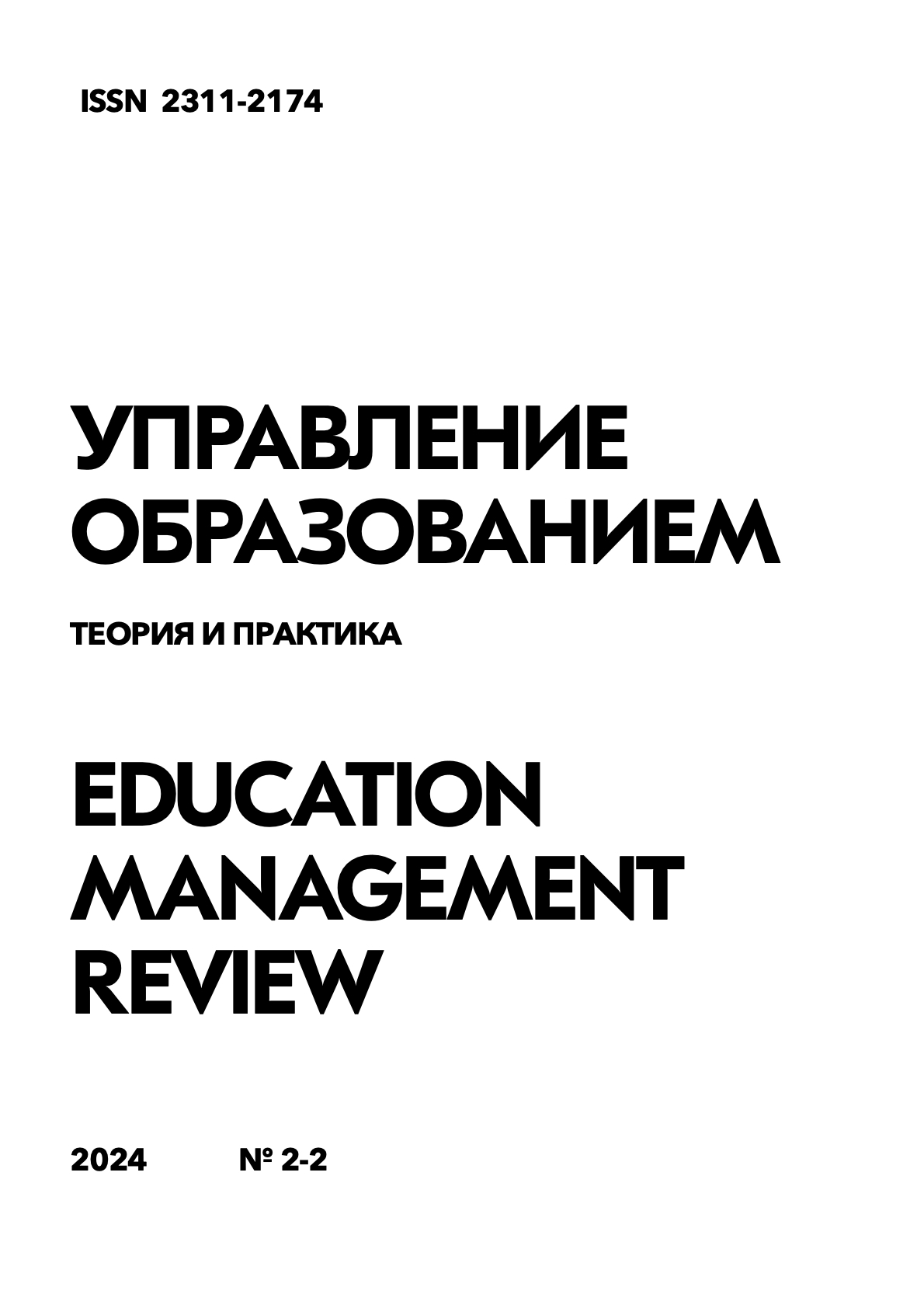Patriotism and citizenship as the moral foundations of personality formation of students in Russian universities
DOI:
https://doi.org/10.25726/e1429-6981-2298-iKeywords:
patriotism, citizenship, upbringing, higher education, personality, values, modelAbstract
The article deals with the problem of the formation of patriotism and citizenship as the moral foundations of the personality of students in Russian universities. The relevance of the research is due to the need to strengthen spiritual and moral values and educate a socially responsible person in the face of modern challenges. The purpose of the work is to analyze the theoretical and practical aspects of patriotic and civic education of students in the educational process of universities. The research methodology is based on a comprehensive approach, including theoretical analysis of scientific literature, generalization of pedagogical experience, and sociological surveys among 1,500 students from 20 universities in Russia. The empirical base was made up of the results of questionnaires, interviews, and focus groups. The results of the study showed that 78% of respondents consider patriotism and citizenship to be important personal qualities. At the same time, 54% of respondents noted an insufficient level of patriotic education in universities. The main problems were identified: the formalism of events (37%), low student engagement (29%), and a shortage of innovative forms of work (25%). A model of patriotic education based on the principles of consistency, an activity-based approach, and consideration of age characteristics is proposed. It includes 5 interrelated components: targeted, meaningful, technological, organizational, and effective. The testing of the model in 7 universities showed its effectiveness: the level of patriotism increased by 20%, civic engagement – by 25%. The scientific novelty of the research lies in the substantiation of the integrative concept of the formation of patriotism and citizenship of students, the development of diagnostic tools and innovative technologies of educational work. The practical significance is related to the possibility of using the results to improve the education system in universities. Prospects for further research are seen in the study of foreign experience, the development of interdisciplinary patriotic projects.
References
Асмолов А.Г. Стратегия социокультурной модернизации образования: на пути к преодолению кризиса идентичности и построению гражданского общества // Вопросы образования. 2016. № 1. С. 65-86.
Бондаревская Е.В. Воспитание как возрождение гражданина, человека культуры и нравственности. Ростов н/Д: РГПУ, 2013. 32 с.
Вырщиков А.Н., Кусмарцев М.Б. Патриотическое воспитание молодёжи в современном российском обществе. Волгоград: НП ИПД «Авторское перо», 2014. 172 с.
Гавриловой Т.П. Гражданское образование в России: проблемы и перспективы // Современные проблемы науки и образования. 2015. № 1. С. 56-62.
Гревцева Г.Я., Ипполитова Н.В. Воспитание гражданственности и патриотизма молодежи: исторический аспект // Вестник ЮУрГУ. Серия «Образование. Педагогические науки». 2017. Т. 9. № 2. С. 28-35.
Григорьев Д.В. Формирование гражданской идентичности современного школьника // Педагогика. 2014. № 9. С. 50-56.
Лутовинов В.И. Современный российский патриотизм: сущность, особенности, основные направления // Studia Humanitatis. 2013. № 2. С. 15-24.
Мудрик А.В. Социализация человека. М.: МПСИ, 2016. 624 с.
Полищук И.А. Гражданская идентичность и патриотическое воспитание в вузе // Педагогическое образование в России. 2015. № 8. С. 200-203.
Рожков М.И. Концепция экзистенциальной педагогики // Ярославский педагогический вестник. 2002. № 4(33). С. 73-77.
Сериков В.В. Личностно-развивающее образование: мифы и реальность // Педагогика. 2007. № 10. С. 3-12.
Сластенин В.А., Чижакова Г.И. Введение в педагогическую аксиологию. М.: Академия, 2003. 192 с.
Филонов Г.Н. Феномен гражданственности в структуре личностного развития // Педагогика. 2012. № 7. С. 38-44.
Хуторской А.В. Компетентностный подход в обучении. Научно-методическое пособие. М.: Эйдос, 2013. 73 с.
Ясвин В.А. Образовательная среда: от моделирования к проектированию. М.: Смысл, 2001. 365 с.




